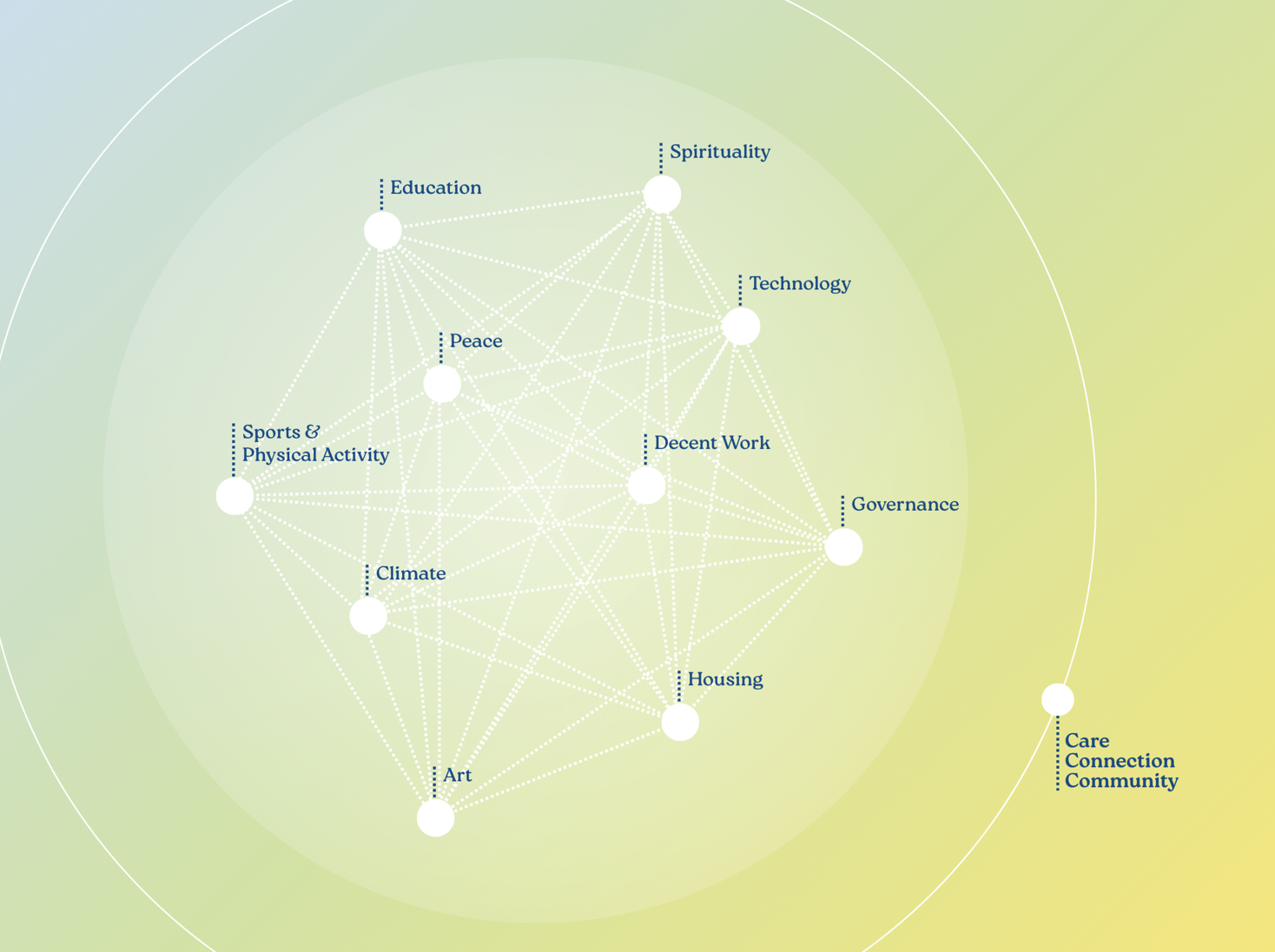United for Global Mental Health
Lessons and Recommendations from the World’s Largest Gathering on Mental Health Advocacy
Multistakeholder Collaboration
10 Feb 2026
United Nations | 26 Nov 2025
Young people today are navigating a world of constant change — facing economic uncertainty, climate anxiety, armed conflict, social injustice and the pressures of a hyperconnected digital culture. These forces have a profound impact on how young people feel, live and thrive.
The global mental health crisis is one of the most urgent issues of our time, with over 1 billion people estimated to be living with a mental health disorder (WHO World Mental Health Report, 2022). According to the WHO Mental Health Atlas (2024), 1 in 2 people will develop a mental health disorder at some point in their lives.
Young people bear a disproportionate burden, with 1 in 7 adolescents aged 10-19 living with a mental health condition (WHO and UNICEF Guidance Note, 2024) and most mental health conditions expressing by the age of 24 (Kessler et al.). Suicide remains a leading cause of death among youth worldwide (WHO Suicide Key Facts). Yet stigma and unjust systems prevent many from getting the support they need. In low- and middle-income countries, young people face even greater barriers, with limited services and access to care.
Good mental health is not simply the absence of illness — it is the foundation for every person to learn, connect and contribute meaningfully to society. True well-being means feeling safe, valued and able to participate fully in family, community and cultural life. It is shaped not only by access to care, but by the environment in which we grow up, study, work and play. Promoting mental health, therefore, is not just a health agenda. It is a social, educational and economic imperative that speaks to human dignity and belonging.
Promoting youth well-being requires a holistic approach that goes beyond clinical responses, and investing in inclusive spaces where young people feel seen, heard and valued is one of the most powerful ways to get there. By prioritizing care, connection and community, we create conditions that unlock every young person's potential to thrive with dignity.
When young people feel connected — through sports, education, arts, civic engagement, intergenerational dialogue and more — they are more likely to flourish. Environments that nurture well-being are those that nurture emotional safety, build resilience, and protect against loneliness and despair.
Mental health does not stand alone. It is shaped by the world around us — by our families and friendships, by schools and workplaces, by culture, technology and community. The ecosystem approach for youth mental health and well-being captures this truth: that a young person’s well-being depends on many systems working together to create a culture of care.
This model — grounded in youth agency and emphasizing care, connection and community — offers a flexible framework that can be adapted to local contexts and diverse cultures. It identifies ten key dimensions that influence youth mental health and well-being, highlighting how these dimensions interact to shape emotional, physical and social health.

We are building a global movement to reimagine what it means to care — for ourselves, for one another, and for the environments where young people grow, learn and lead. We believe that true well-being starts with connection, grows through collaboration, takes shape through advocacy, and becomes real through action.
This is why we work to:
Every action matters. ACT brings together youth, governments, and partners to put commitments into motion — translating ideas into local and global impact. We support local projects and pilot programmes that strengthen well-being ecosystems in schools, workplaces and communities, online and offline. From grassroots initiatives to national reforms, every action contributes to systems where young people can truly thrive with dignity.
The mental health and well-being of young people is a shared responsibility. The UN Youth Office works with partners across the UN system, including the World Health Organization (WHO), UNICEF, UNESCO, OHCHR, and UNFPA, to advance a common vision and reinforce inclusive, youth-led and youth-responsive mental health and well-being ecosystems.
By centering young people’s voices and lived experience, this “One UN” collaboration turns global commitments into real, coordinated change, advocating for the conditions for youth everywhere to thrive.
In today’s complex and unpredictable world, young people need ecosystems that can help them not only withstand adversity, but also grow through it.